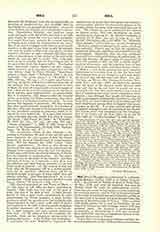

Hell (HOLL), MAXIMILIAN, astronomer, b. at Schemnitz in Hungary, May 15, 1720; d. at Vienna, April 14, 1792. He entered the Society of Jesus at Trentschin, October 18, 1738, and after his novitiate was sent to Vienna, where he made his philosophical studies. From his early years he had shown a strong inclination for scientific pursuits, and in 1744 he devoted himself to the study of mathematics and astronomy, acting at the same time as assistant to Father Joseph Franz, the director of the observatory at Vienna. After teaching with much success for a year at Leutschau, he returned to Vienna to study theology, and in 1751 was ordained priest. He received a professorship of mathematics at Klausenburg in 1752 and remained there until 1755, when he was appointed director of the Imperial observatory at Vienna.
Father Hell‘s most important work was perhaps the annual publication of the “Ephemerides astronomicae ad meridianum Vindobonensem”, which he began in 1757 and continued for many years. These contain a large number of valuable observations and data. He was invited by the King of Denmark to undertake at Vardohuus, Norway, the observations of the transit of Venus of 1769. The transit observations were successful, and after spending some months at Copenhagen preparing his results for the press, he returned to Vienna in 1770. Owing to delays in publication Hell was afterwards suspected of manipulating his data to make them fit in with others taken elsewhere. The suspicion was strengthened by Littrow when director of the Vienna Observatory, after a study of the original manuscripts (cf. Hell‘s “Reise nach Wardo u. seine Beobachtung des Venus-Durchgangs in Jahre 1769”, Vienna, 1835). It was not until 1890 that Father Hell‘s reputation was cleared of the stain of forgery by Prof. Simon Newcomb, who made a critical study of the journal in question and showed conclusively that Littrow’s inferences were entirely at fault. The latter, it appears, had originally been led into error by a defect in his sense of color. Father Hell was of a gentle disposition and simple in his tastes. His devotion to the Church and to his order often cost him much persecution. Besides the “Ephemerides”, he was also the author of “Elementa algebra Joannis Crivelli magis illustrata” (Vienna, 1745); “Adjumentum memoriae manuale chronologico-genealogico-historicum” (Vienna, 1750); “De la celebration de la Paque” (ibid., 1761); “Elementa arithmeticae numericae et litteralis” (ibid., 1763); “De satellite Veneris” (ibid., 1765); “De Transitu Veneris” (Copenhagen, 1770), etc.
HENRY M. BROCK

